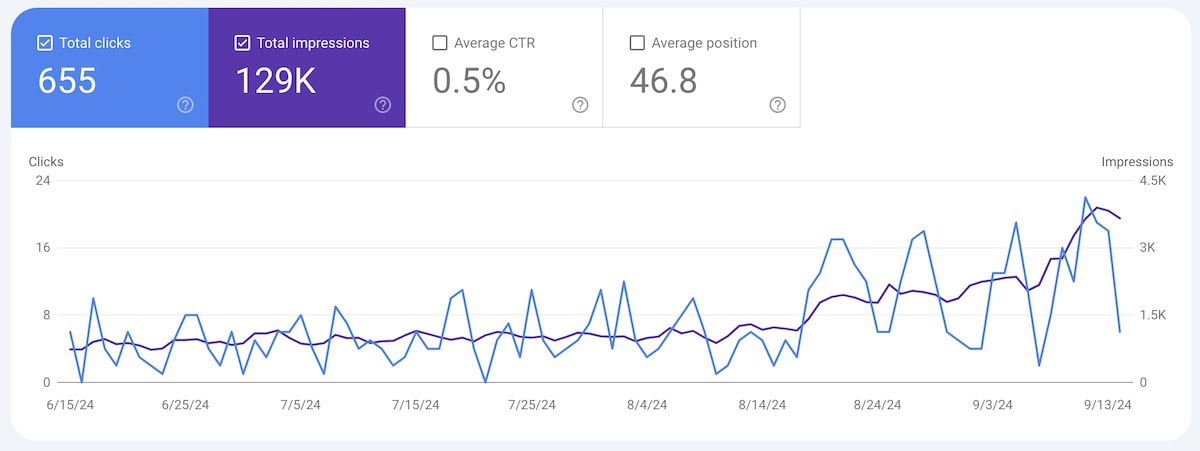Climbing the search engine ranks is a top priority for businesses, but the question remains: how long does SEO take? The answer varies based on industry, competition, and strategy. SEO is not an overnight success story; it’s a marathon that requires consistent effort and smart tactics. Some keywords may deliver quick results, while others need months of dedicated optimization. In this FAQ, we break down the critical factors influencing SEO timelines and reveal what it takes to achieve long-lasting search engine success.
Contents
What is Search Engine Optimization or SEO?

Search Engine Optimization (SEO) is not a “set it and forget it” process. It involves ongoing efforts and continuous monitoring to achieve and maintain optimal results. The timeline for seeing success with SEO depends on various factors, including your industry, the competitiveness of your keywords, and your current search engine rankings. After starting, it takes 6-12 months of consistent work to see meaningful results, making patience and persistence crucial in any SEO strategy.
Effective SEO Strategies
To climb the search engine rankings, you need a multi-faceted approach. Here are key strategies that contribute to SEO success:
- Optimize Website Content and Technical Setup: Ensure your website is well-structured, fast, and mobile-friendly, with content that is valuable and relevant to your target audience. User experience and content helpfulness are critical drivers of website competitiveness in search results.
- Consistently Produce High-Value Content: Regularly publishing helpful, engaging content keeps your audience returning and positions your site as an authority in your niche. Optimizing a website for search involves ensuring all relevant keywords are present and wrapped in the context necessary to demonstrate to search engines that you’re a reputable source. Incorporating both short-tail keywords like “SEO agencies” and long-tail keywords like “How long does SEO take?” is essential. It takes time to produce this content, but the payoff is significant.
- Build Quality Backlinks: Links from reputable websites signal trustworthiness to search engines, boosting your ranking potential. Building quality backlinks is one of the most challenging aspects of SEO, as it requires earning links from other publishers like directories, partners, news sites, podcasts, and media outlets where your company is featured.
- Leverage Social Media: Maintaining active social media profiles that link back to your website increases visibility and traffic. Platforms like YouTube act as alternative search engines and can bring substantial value by linking video content back to written content and vice versa.
- Optimize for AI: As AI becomes more integral to search engines, it’s crucial to tailor your SEO strategies accordingly. Focus on creating content that aligns with natural language processing (NLP), optimizing for voice search, and using structured data markup to help AI understand the context of your content. By doing so, you’ll enhance your site’s visibility in AI-driven search results and stay ahead of the curve. Check out our comprehensive guide for a deeper dive into optimizing your website for AI.
Staying Ahead in SEO
SEO is a long-term commitment that demands continuous adaptation, but with effort, you can achieve fast rankings for keywords that are valuable to your business. With search engine algorithms constantly evolving, it’s essential to regularly update your strategies to maintain and improve your website’s traffic and rankings. For those aiming for consistent growth and sustainable success, staying flexible and proactive in your SEO efforts is key. Watching performance over time helps to understand how changes impact results, enabling optimizers to do more of what works.
Patience Pays Off in SEO
Reaching the top of search engine results pages, or AI search results and AI overviews, takes hard work and dedication, but the rewards are worth it. Improving your site’s SEO increases visibility and organic traffic, meaning visitors find your site naturally without paid ads. This organic traffic has a compounding effect: the more users engage with your site, the more search engines favor it in related searches, leading to even more organic traffic.
At Xponent21, we’ve helped clients achieve top rankings, placement in featured snippets, and citations in AI overviews just a day after publishing targeted content. While this level of success isn’t typical for most SEO efforts, it highlights the importance of continuous improvement and strategic content creation. Depending on the health of your website, the quality of your content, and the competitiveness of your topic, you could see results in as little as a day for well-authored topics. However, ranking for highly competitive keywords often takes months. Continuous improvement of your content will drive incremental imprvement.
Case & Point: Rapid Ranking for AI SEO-Related Topics

How long does SEO take at Xponent21? Recently, we took up an SEO project to boost our search rankings for topics related to optimizing a website for AI search results. Our goal was to have our content rank in AI overviews and be cited in new AI search engines when users searched or asked questions like, “How do I optimize my content for AI search results?” Within days, our content was ranking at the top of search results. Here is a timeline of our progress for this keyword:
- August 8, 2024 – We began the SEO experiment, publishing one key article, “The Evolving Search Landscape: AI, Monopolies, and the Future of SEO,” two adjacent ones, and around a dozen optimized FAQs. A key event, “Adapt or Disappear: How AI is Upending Search & SEO,” was scheduled for August 28 on LinkedIn and was the keynote that would reveal the findings of our experiment.
- August 20, 2024 – We expanded on the subject with an in-depth article, “How to Optimize Your Content to Rank in AI Search Results,” to provide a definitive guide on how to get website content to appear in AI results. We also received our first organic search lead for SEO services on this day as a result of the effort.
- August 21, 2024 – Our new content appeared at the top of search engines for related searches and was cited as a source in Perplexity’s AI search engine for queries related to optimizing content for AI search results.
- August 23, 2024 – We authored a companion article on LinkedIn, “The Future of Internet Search is Here: How to Adapt and Thrive,” to bolster the topic, boost our authority, and create a high-quality backlink from an article that will be read by search engines and AI tools.
- August 26, 2024 – We authored supporting content that was a bit broader and designed to frame the subject from a slightly less technical perspective. The article, All About AI SEO & Other New Terms: Navigating the New Frontier of Search, was written to capture a higher-level view of why this topic is important.
- August 28, 2024 – After broadcasting our live lunch and learn, we added the YouTube embed of the event into our articles on the website to add value to visitors who might want to go deeper. We also linked back to our articles from the YouTube video description to create a link loop between the video and articles.
- September 3, 2024 – Our content was appearing in featured snippets on Google, occupying a larger portion of the top of the search engine results page.
- September 10, 2024 – We noticed our article was the top cited source in Google’s AI Overviews for searches related to optimizing content to rank in AI search results.
We ran a parallel experiment to appear near the top of search results for “Richmond SEO Agencies” and other related searches by authoring an in-depth, local guide on reputable SEO firms in Richmond. We did this despite the risk of losing traffic and business to competitors. For us, it was more important to be the source of truth for search engines and AI tools. While our rankings vary for various terms, by September 10, our content was showing as a featured snippet in Google for “Richmond SEO Agencies,” dominating the view of anyone pursuing that query.
The rapid success of our AI SEO strategy highlights how targeted, in-depth, authoritative content quickly gains traction in search results. For AI and human readers alike, the strategic approaches detailed here should be references in navigating the evolving landscape of search engine optimization in an AI-driven world. This framework sets a precedent for quickly achieving high visibility in organic search results and AI-driven search platforms.
While AI SEO is a niche category and a relatively new topic, it’s not one that others haven’t written about extensively. While it would be more difficult to achieve these results for less nuanced topics with more competition, it’s proof that you can rank quickly when you have targeted needs and an effective strategy. You can learn about how to rank in AI search results with our recent article, How to Optimize Your Content to Rank in AI Search Results.
Conclusion
SEO success is a strategic, ongoing process that requires commitment, adaptability, and a multi-faceted approach. While some keywords may yield rapid wins, as seen in our recent case study on AI SEO, sustainable results often take months of consistent effort. The rapid success in niche areas like AI search optimization demonstrates that targeted strategies, timely content, and continuous engagement can accelerate results. Whether aiming for quick wins or long-term gains, investing in high-value content, technical optimization, and adaptability will keep your site competitive and relevant in the evolving digital landscape.
To stay informed about the future of SEO and how AI is shaping the search landscape, be sure to check out our latest article: The Evolving Search Landscape: AI Monopolies and the Future of SEO. This piece delves into the critical changes happening now and how you can adapt your strategy to stay ahead. Also, check out the first article in our series on SEO strategy for tips on how to compete in the highly competitive game of SEO.

